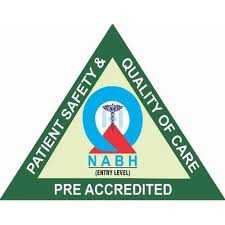
Cataracts, a prevalent eye condition characterized by the clouding of the eye’s natural lens, affect millions of people worldwide. Understanding the intricacies of cataract surgery is crucial for those seeking effective treatment options. In this comprehensive guide, we’ll explore everything you need to know about cataract surgery, from diagnosis to recovery and beyond.
Understanding Cataracts
Cataracts develop when proteins in the lens of the eye clump together, causing cloudiness and interfering with vision. While aging is the primary risk factor for cataracts, other factors such as genetics, diabetes, and prolonged exposure to sunlight can also contribute to their development.
Symptoms and Diagnosis
Early symptoms of cataracts may include blurred vision, sensitivity to light, and difficulty seeing at night. Diagnosis typically involves a comprehensive eye examination, including visual acuity tests, pupil dilation, and evaluation of the lens’s clarity using specialized equipment.
Types of Cataracts
There are several types of cataracts, each affecting different parts of the lens. Nuclear cataracts develop in the center of the lens, cortical cataracts affect the lens’s outer edges, and posterior subcapsular cataracts form at the back of the lens. The type of cataract can impact treatment options and surgical techniques.
Preparation for Surgery
Before undergoing cataract surgery, patients undergo a series of preoperative evaluations to assess their overall eye health and identify any underlying conditions that may affect the procedure’s outcome. It’s essential to follow your surgeon’s instructions regarding medications, particularly those that may increase the risk of bleeding during surgery.
Modern Surgical Techniques
Advancements in cataract surgery have led to the development of innovative techniques that offer improved outcomes and shorter recovery times. Phacoemulsification, the most common method used today, involves using ultrasound energy to break up the cloudy lens and remove it through a small incision. Femtosecond laser-assisted cataract surgery is another option, offering greater precision and control during the procedure.
Choosing the Right Surgeon
Selecting a skilled and experienced surgeon is paramount to the success of your cataract surgery. Consider factors such as the surgeon’s credentials, experience performing cataract surgeries, and patient satisfaction rates. Don’t hesitate to ask questions during your consultation to ensure you feel comfortable and confident in your surgeon’s care.
The Surgical Procedure
Cataract surgery is typically performed on an outpatient basis under local anesthesia. During the procedure, the surgeon makes a small incision in the eye, breaks up the cloudy lens using ultrasound or laser energy, and replaces it with an artificial intraocular lens (IOL). The entire process usually takes less than an hour and is virtually painless.
Recovery Process
Following cataract surgery, patients may experience mild discomfort, redness, and sensitivity to light. It’s essential to follow your surgeon’s postoperative instructions carefully, including using prescribed eye drops and avoiding strenuous activities that may strain the eyes. Most patients notice a significant improvement in their vision within a few days, with full recovery expected within several weeks.
Expected Results and Outcomes
The vast majority of patients experience a significant improvement in their vision following cataract surgery. Many report clearer, sharper vision and a reduced reliance on corrective eyewear. While some patients may still require glasses for certain activities, the overall quality of vision is markedly improved.
Lifestyle Modifications
Maintaining a healthy lifestyle can help support eye health and optimize surgical outcomes. Eating a balanced diet rich in antioxidants and vitamins, protecting your eyes from UV exposure with sunglasses, and quitting smoking can all contribute to long-term eye health and vision preservation.
Potential Complications
While cataract surgery is considered safe and highly successful, there are potential risks and complications associated with any surgical procedure. These may include infection, inflammation, bleeding, and increased intraocular pressure. However, the likelihood of experiencing serious complications is low, particularly when the surgery is performed by a skilled surgeon in a reputable facility.
Cost Considerations
The cost of cataract surgery can vary depending on several factors, including the type of procedure performed, the surgeon’s fees, and any additional testing or treatments required. Most insurance plans cover cataract surgery as it is considered a medically necessary procedure. However, patients should check with their insurance provider to understand their coverage and any out-of-pocket expenses they may incur.
Alternative Treatments
In some cases, lifestyle changes and prescription eyewear may help manage cataract symptoms without the need for surgery. However, for those with significant vision impairment, cataract surgery remains the most effective treatment option. Patients interested in alternative treatments should consult with their eye care provider to determine the best course of action.
Cataract Surgery in Special Populations
Certain populations, such as seniors and individuals with underlying health conditions, may require special considerations when undergoing cataract surgery. Pediatric cataract surgery also presents unique challenges and requires a specialized approach. It’s essential for patients in these populations to work closely with their eye care team to ensure the best possible outcomes.
Future Directions in Cataract Surgery
The future of cataract surgery looks promising, with ongoing research and development focused on improving surgical techniques, enhancing intraocular lens technology, and expanding access to care. Emerging technologies such as adjustable-focus IOLs and advanced imaging systems hold the potential to further improve outcomes and patient satisfaction.
In conclusion, cataract surgery remains a beacon of hope for those grappling with vision loss due to cataracts. At Vision Plus Eye Centre, we are committed to providing unparalleled care and expertise to our patients, ensuring optimal outcomes and restored clarity of vision. With advancements in surgical techniques and ongoing innovation in the field, the future looks brighter than ever for individuals seeking to reclaim their sight and enhance their quality of life. Trust Vision Plus Eye Centre to guide you through every step of your cataract surgery journey, empowering you to see the world with renewed clarity.
all Now at 0120-2481481, 2480480 +91 88003 13134 or email us at info@visionplus.net.in.
Book an Online Appointment: https://visionplus.net.in/contact/
About Author Bio: Dr. Ritu Aurora, M.S., is a Cataract & Refractive Surgeon. With expertise in these areas, she is dedicated to providing comprehensive eye care and ensuring the well-being of her patients. Dr. Aurora brings a wealth of knowledge and experience to her practice.

